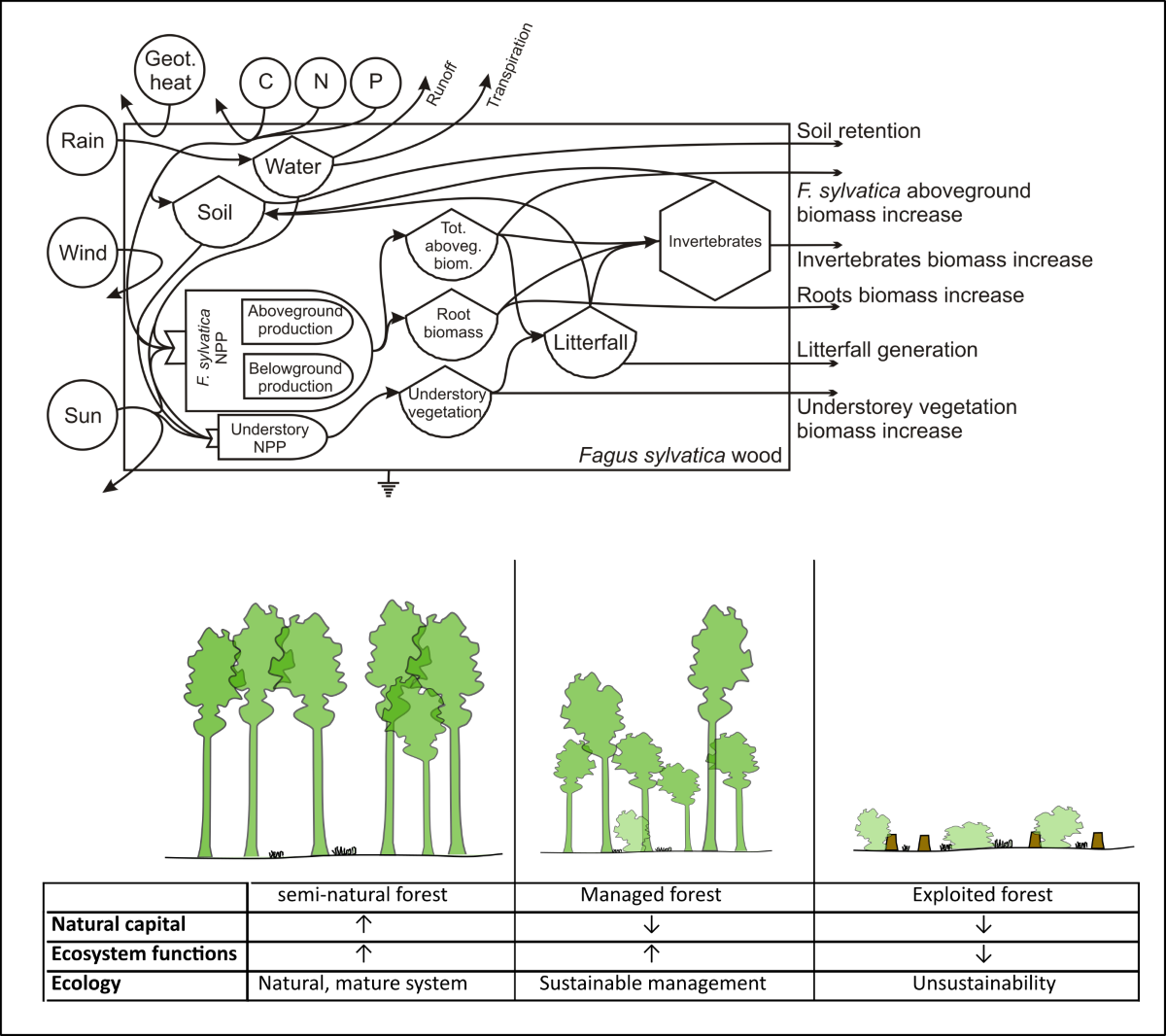Forest ecosystems are important providers of ecosystem functions and services belonging to four categories: supporting, provisioning, regulating, and cultural ecosystem services. Forest management, generally focused on timber production, has consequences on the ability of the system to keep providing services. Silviculture, in fact, may affect ecological structures and processes from which services arise. In particular, the removal of biomass causes a radical change in the stocks and flows of energy characterizing the system. Aiming at the assessment of differences in stored natural capital and ecosystem functions and services provision, three differently managed temperate forests of common beech (Fagus sylvatica) were considered: (1) a forest in semi-natural condition, (2) a forest carefully managed to get timber in a sustainable way and (3) a forest exploited without management. Natural capital and ecosystem functions and services are here accounted in biophysical terms. Specifically, all the resources used up to create the biomass (stock) and maintain the production (flow) of the different components of the forest system were calculated. Both stored emergy and empower decrease at increasing human pressure on the forest, resulting in a loss of natural capital and a diminished ability of the natural system to contribute to human well-being in terms of ecosystem services provision.

